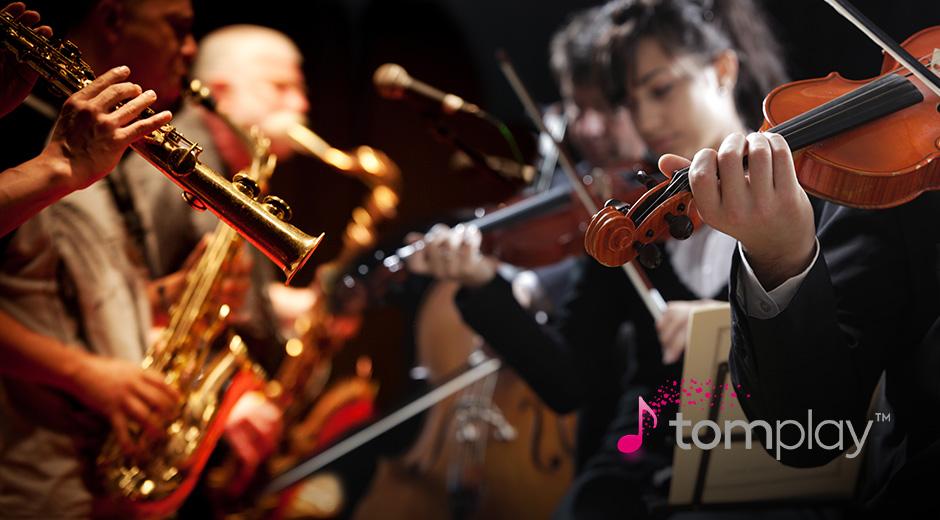Music and its infinite virtues
The powers of music affect our bodies and our minds in many ways and quite spectacularly, whether we’re listening to it or playing it. Let’s have a look at how and why this is.

It is well known that learning to play an instrument when you are young has many virtues. It is a very rounded exercise for the brain, which has the effect of developing our cognitive functions, in other words the memory, attention span, learning skills and language, as well as visual, psychomotor and executive functions.
Playing music is therefore a powerful stimulant, especially for the youngest children who are in a phase of learning and development!
But this is not all: remember that the left hemisphere of the brain is that which governs reason. It is logical, Cartesian and sequential. It is the dominant side of the brain in 80% of the population in the West.
As for the right hemisphere, this governs intuition, creativity and the imagination. At birth, the right side of the brain is dominant, but under the effect of education, schooling and society, this tendency is inversed.
Playing music, of course, is an excellent tool for making both hemispheres work equally and the best possible way of using all their capacities!
.jpg)
Music is also an excellent vector for social cohesion. By playing music together, singing or simply listening to music in a group, relationships are strengthened, communication becomes simpler and more natural.
By playing music with other people, we learn to listen to others, to communicate better, to express ourselves within a group and also to understand that each individual has an important place. For families, sharing a love of music reinforces relationships!
It is also a powerful social marker. Have you ever felt closer to people than those who have similar musical tastes to your own? This is the sociology of music. Thus, even if this was more the case during the last century, there are still groups which form at school according to musical tastes.
Above all, however, our musical tastes choose us: a rational and logical person would be more attracted to baroque music especially, maybe, that by Bach. On the contrary, a more intuitive and emotional person would be touched more by romantic music, by Chopin perhaps.
.jpg)
The natural predispositions which we may have or not for being anxious are also a determining factor of the music which we like to play or listen to, just the same as our biological or ethnic identity or past experiences. This is called the Gestalt sound identity.
Thus, we turn more towards music which corresponds to our interior sound identity, which may evolve over time or be modified ad hoc. Indeed, it is a complex mixture of specific vibrations and tempos which determine whether we are affected or not.
Think how our memories and feelings can be powerfully imprinted on a song or a piece of music, even more strongly than on a simple photo, which reminds us more of our actions than our emotions.
As well as affecting our sound identity, music changes our heart beat and may be able to change our mood completely in this way.
.jpg)
The beating of our heart locks into the tempo of the music we are listening to or playing and by modifying the rhythm of our heart and our breathing, our brain releases dopamine and endorphins, also known as the happiness hormones.
Other than the fact of making us happier, these hormones make us also less sensitive to pain, stimulate us, for example during sporting activities, or make us want to move, to dance, alleviate anxiety and stress and consequently increase our life expectancy!
For example, sonology brings about deep relaxation through the principle of resonance and the law known as “sympathetic vibration”, by using Tibetan bowls and tuning forks to work on these frequencies.
As for musicology, this is being used more and more in the medical world, for helping a patient come out of a coma or to treat Alzheimer’s. We know that music specifically stimulates the hippocampus, the still quite mysterious part of our brain linked to memory. Thus, patients have been seen being able to sing by heart songs from their childhood, while they have difficulty recalling the first names of those dear to them. Beyond these discoveries, these experiences give patients back a taste for communicating, smiling and singing!
.jpg)
If the powers of music are so great, it is therefore quite right to ask whether we are the only ones to take advantage of them. It appears obvious that we are not. Experiments prove that animals are also very sensitive to music and are at all indifferent regarding their choice of style. For them, music has the same effect as for humans: relaxation and the improvement of mood and health!
This is not all: plants are also sensitive to music. Studies show that playing music in a greenhouse considerably stimulates the growth of plants. As music is simply vibrations, it appears logical that it should affect all living organisms.
.jpg)
Our brain is very receptive to music and this is the same for our heart, but our whole body hears and understands music and its vibrations. It is wonderful to think that by playing it, we are giving music meaning through our emotions and it gives us back by the hundredfold the gift of its many virtues!

댓글 남기기...